Looking back 50 years after the country's reunification, Vietnam has developed strongly in many fields, including science and technology. The artificial intelligence (AI) market in Vietnam is becoming increasingly vibrant and promising, demonstrating this remarkable development.
In addition, with supportive policies from the Party and State, abundant technology human resources and huge amounts of data, Vietnamese technology companies are actively applying AI in a variety of fields, from customer service, digital government, to smart cities.
Not only stopping at application, Vietnamese enterprises are also making efforts to master core technologies, build a strong AI ecosystem, and closely cooperate between large corporations and startups.
This demonstrates Vietnam's strong determination to utilize advanced technology to promote national development, towards a smarter and more efficient future in the post-unification development period.
To gain insight into the current situation, opportunities and challenges on the journey to conquer this advanced technology, Dan Tri reporter had an interview with Mr. Nguyen Manh Quy, Director of Viettel AI - one of the pioneers in the field of artificial intelligence (AI) in Vietnam.
AI must be included in Vietnam's strategic technology portfolio.
Sir, in the context of Vietnam's strong development, especially after Resolution 57 of the Politburo on breakthroughs in science and technology development was issued, how do you assess the current state of the artificial intelligence (AI) market in Vietnam? What are the most vibrant AI application fields?
- The field of artificial intelligence in Vietnam is currently very vibrant, not only large domestic companies but also innovative startups and international Big Tech corporations are present and strongly promoting AI applications.
Previously, we have witnessed the emergence of many applications such as smart cameras for traffic and security monitoring, or electronic customer identification (eKYC), which helps users register and use online services without having to go to the store.
In particular, the emergence of large language models such as GPT, Gemini, Grok... has made chatbots smarter and more superior in interacting with humans. This helps expand the scope of AI applications.
In the past, AI was mainly used for specialized tasks or use cases in narrow industries. Now, this advanced technology can do much more and penetrate many fields.
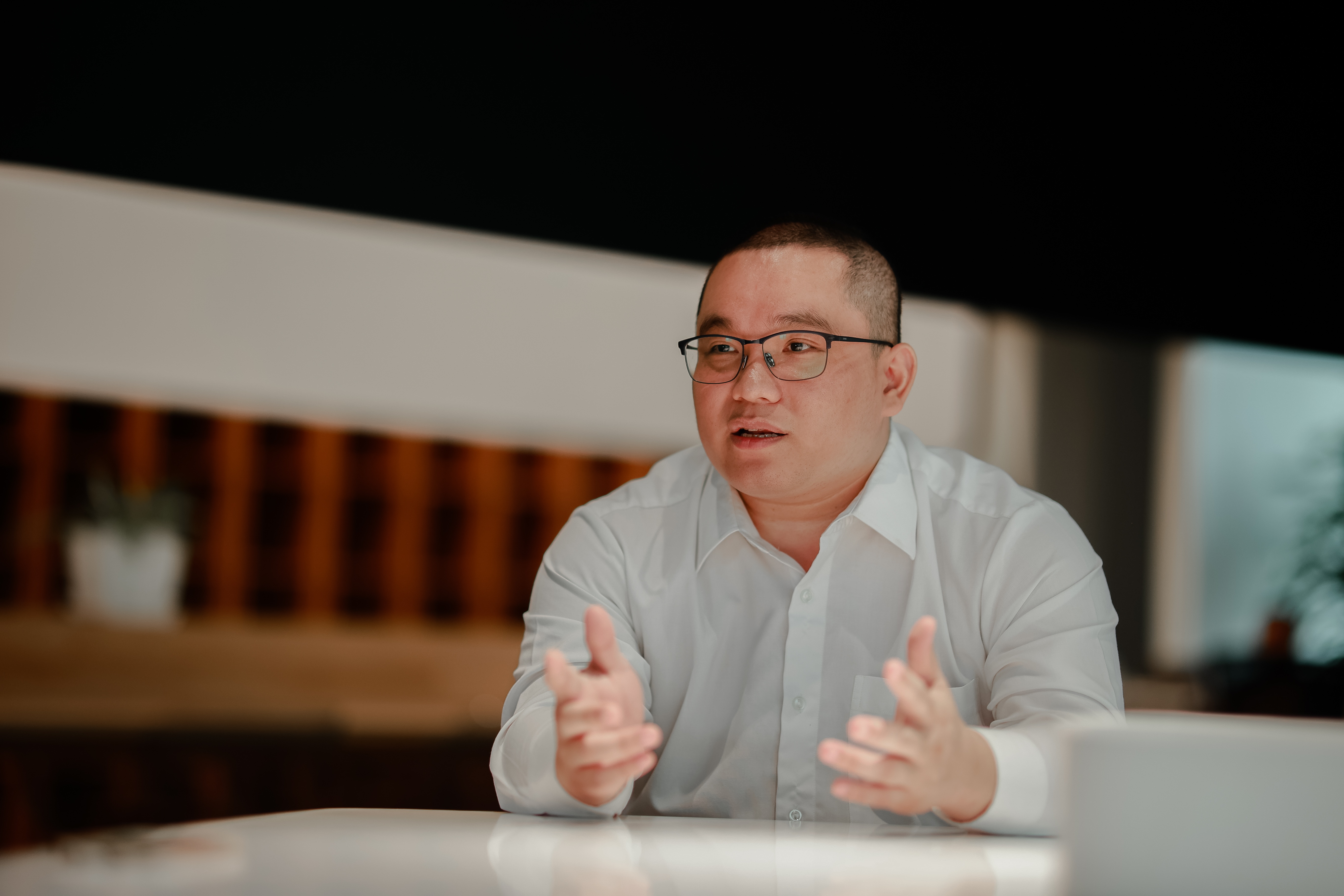
Mr. Nguyen Manh Quy, Director of Viettel AI (Photo: Viettel).
I think AI applications are currently focused on assisting humans better in their work, especially personal work. For example, users doing marketing work can rely on current chatbots like ChatGPT, Grok to plan communication, suggest key points, and even plan completely on their own.
Then, we can combine image generation, content generation, and video generation tools to create illustrations and complete that article. Even Viettel AI's marketing team is using these tools every day as an indispensable part.
Now everyone asks ChatGPT to learn knowledge very quickly. Even my child at home uses it to learn information and study.
AI is now not only for companies, businesses or organizations that previously required large investments to use, but there are now many free AI tools that meet individual needs.
I see the application of AI for individuals being very effective. People are starting to use AI as a personal assistant, and AI becomes a second brain.
Current large language models like GPT are trained on global data with diverse languages (books, academic documents, news sites, etc.), human knowledge is remembered in these large language models, so when you have a question, these chatbots all answer relatively well, helping to enhance your own abilities.
In the enterprise sector, we apply it a lot in customer service, network operations and administrative activities. Customers can interact with chatbots or voicebots to ask about services, products or report problems.
Viettel itself also uses support systems to help call center staff look up customer information faster. When meeting customers, our multi-service sales team can ask the chatbot about information about Viettel's products/services.
The applications of AI in business are very diverse. I see the explosion of ChatGPT and large language models making AI more intelligent, communicating more naturally, encouraging more users to use it, and bringing great benefits for both personal and work purposes.
In your opinion, is artificial intelligence considered a strategic technology that Vietnam needs to master?
- This has been affirmed in Resolution 57. Artificial intelligence must be included in the list of strategic technologies, because to improve labor productivity, artificial intelligence must be used. We need to master this core technology.
Digital transformation now without artificial intelligence or big data analysis will be ineffective. Besides, the Government is also drafting a strategy called digital transformation with AI, in which Viettel also participates.
This draft emphasizes that upcoming digital transformation applications must be smarter by applying AI in the execution and interaction process. Therefore, I firmly believe that AI will have to be the leading strategic technology that Vietnam needs to master.
Can you share the opportunities and challenges in developing AI applications in Vietnam at the present time?

Thanks to the world's leading large language models, we can easily integrate them into our own data to build specific question-answering applications.
- In terms of opportunities, I think there are a lot of them now. Thanks to the world's leading large language models, we can easily integrate them into our own data to build specific question-answering applications.
For example, Viettel can use data on policies and packages to build chatbots to answer customers. Creating smart chatbots is now much easier than before.
In addition, AI-powered automation platforms (AI Agents) are also evolving towards having multiple skills, helping to automate specific tasks according to user needs.
Nowadays, with the rapid development of technology, AI is getting smarter, integrating advanced features into applications becomes easier, creating many opportunities for companies to develop applications in their business operations.
Regarding challenges, I think in Vietnam there is not yet a large enough infrastructure for companies to research and build their own foundation models.
Although using foreign company platforms is feasible and beneficial, it also raises many issues related to customer data security or business data when using Cloud services with servers located abroad.
However, I believe the opportunities outweigh the risks. It is important that users understand and use it responsibly.
Recently, overseas, there have been cases where employees of a large company posted corporate information on public chatbots for questions and analysis, leading to corporate information being leaked, causing information insecurity. The core issue is that we need to raise awareness and guide users on how to use it properly.
Another challenge is the dominance of global Big Tech corporations over core technology, especially large language models of OpenAI, Google, Meta.... The application part has many opportunities, but the core technology part, if we do not master it ourselves, also has many risks. We also need to master core technology to develop further and more sustainably in the future.
Competitive advantages of Vietnamese AI
Compared to other countries in the Southeast Asian region, what are the unique characteristics or competitive advantages of Vietnam's AI market, sir?
- Previously, when researching to evaluate the competitive advantages of Viettel in particular and Vietnam in general in the field of AI, international partners assessed that Vietnam has very good human resources compared to surrounding countries.
We have a strong math talent base and a large software development workforce, and Vietnam also has growing Computer Science and Data Science training programs.
In addition, Vietnam's technology workforce is also very fond of new technologies. These are great advantages related to human resources compared to the Southeast Asian region in general.
Second, we have had policies from the Party and the State to promote the development and application of AI, such as Resolution 57 of the Politburo and Resolution 71 of the Government, which have strongly promoted digital transformation, including the application of many technologies such as Big Data, artificial intelligence, IoT... to make the digital transformation process faster and smarter.
Regarding Big Data, IoT and AI, how do you evaluate Vietnam's current human resources?
- We must see that Vietnamese people use social networks and digital platforms at the top of the world.
For example, YouTube, Vietnam is one of the countries with the most viewers, social networks are also very popular in Vietnam or information posted in the press, all have created a huge amount of data. This is an abundant source of data for AI development.

If we have a strategy to utilize domestic data sources to train AI, help AI understand Vietnamese users better, and develop more intelligently, it will greatly help domestic technology development.
However, currently, data generation platforms are mainly provided by Big Tech corporations, while there is a lot of data generated by Vietnamese people. If we have a strategy to take advantage of this data source to train AI, help AI understand Vietnamese users better, and develop more intelligently, it will greatly help the development of domestic technology.
So how do you evaluate the current situation of Vietnam's technological capacity to handle Big Data, IoT, and AI?
- I think that in terms of Vietnam's technological capacity, we have kept up with the world's development. When the world has new technology, Vietnamese companies quickly learn, test, and deploy it without delay.
As I said, Vietnamese people's ability to adapt to new technology is very fast, for example, the ChatGPT tool was born about 3 years ago. Now the number of users of this chatbot is very large, some people even consider it an indispensable tool.
They ask AI for information, even about deep issues, and get answers very quickly. We ourselves also use it a lot to learn and improve our knowledge. It is like a second brain, helping us learn information faster.
How does Viettel participate in the AI field, sir?
- We have only been involved in the AI field since 2019. During the research process, of course we also had advantages and difficulties.
The main advantage is that Viettel is the largest network operator in Vietnam, we have mobile technology (4G, 5G), a very strong fiber optic system, and the number 1 data center infrastructure.
Viettel also recognized the importance of AI very early. In 2021, we invested in a supercomputer system to train AI models, helping to reduce machine learning training time dozens of times compared to before.
By 2022, we and Nvidia have signed a cooperation agreement to deploy the AI Nation program to quickly access advanced technology.

Viettel eKYC is widely applied from the financial sector to other operations (Photo: Viettel).
Recently, with the explosive growth of Generative AI, Agentic AI, we decided to invest in data center infrastructure in Tan Phu Trung, Ho Chi Minh City with a scale of up to 140MW and invest in GPU systems with a computing capacity of 1.5 ExaFLOPS to meet AI model research with up to 200 billion parameters. In addition, we also invest in GPU infrastructure providing AI services with up to 1,000 cards to promote AI applications and smart transformation.
What will the future of AI be like?
Which AI trends do you predict will strongly shape the Vietnamese market in the coming time?
- I think after Generative AI, a strong trend will be Agentic AI that will help people automate small "skills". For example, writing an article is a skill, reading and replying to emails is also a skill.
In life, we have to do a lot of things, AI Agent will support us to perform some specific tasks and it will develop in the direction of having many skills, when users need any skills, AI will automate the work for them.
In the future, this trend is inevitable, helping us to work more effectively. Previously, we had to interact with chatbots many times. But AI Agent is different in that the user gives it a goal, and it has the ability to think to plan, do it step by step.
AI Agents can communicate with each other to handle complex workflows faster and more efficiently, by combining small skills. I believe that in the next few years, AI Agents will be a trend for everyone to apply, helping to improve work efficiency.
In the more distant future (maybe 5-10 years from now), the new trend could be humanoid robots, AI will embody and have a body, self-aware of the environment, thinking and acting.
If before, AI was just software, something that was very difficult to imagine, this new trend introduces the concept of AI with a body, combining both hardware and software.
Smart AI like ChatGPT needs a very powerful cloud server system, but putting that intelligence into a robot body requires a lot of optimization in processing, energy...
This could be the next trend after Generative AI and AI Agent - robots with intelligence and reasoning ability to interact and operate autonomously in the physical environment, not just working according to a fixed script or plan.
Thank you for taking the time to chat!
Source: https://dantri.com.vn/cong-nghe/chien-luoc-phat-trien-ai-viet-nam-tu-ung-dung-den-lam-chu-cong-nghe-loi-20250429083100110.htm



![[Photo] Ha Giang: Many key projects under construction during the holiday season](https://vphoto.vietnam.vn/thumb/1200x675/vietnam/resource/IMAGE/2025/5/1/8b8d87a9bd9b4d279bf5c1f71c030dec)


![[Photo] Binh Thuan organizes many special festivals on the occasion of April 30 and May 1](https://vphoto.vietnam.vn/thumb/1200x675/vietnam/resource/IMAGE/2025/5/1/5180af1d979642468ef6a3a9755d8d51)




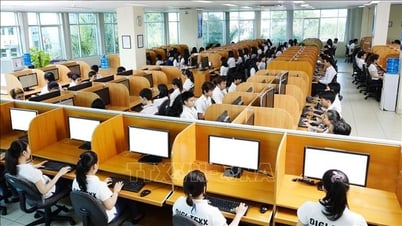

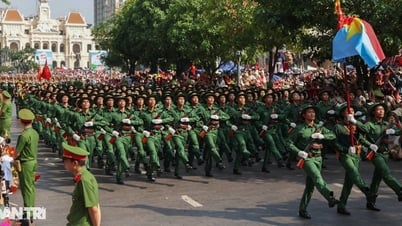










![[Photo] Feast your eyes on images of parades and marching groups seen from above](https://vphoto.vietnam.vn/thumb/1200x675/vietnam/resource/IMAGE/2025/4/30/3525302266124e69819126aa93c41092)




































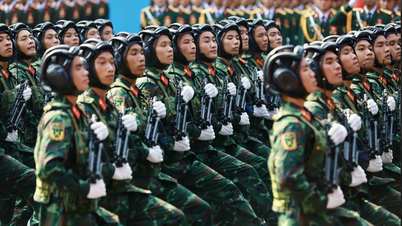














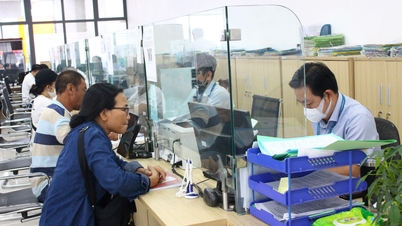


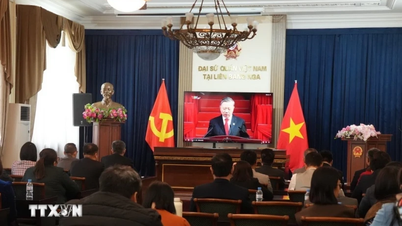
















Comment (0)